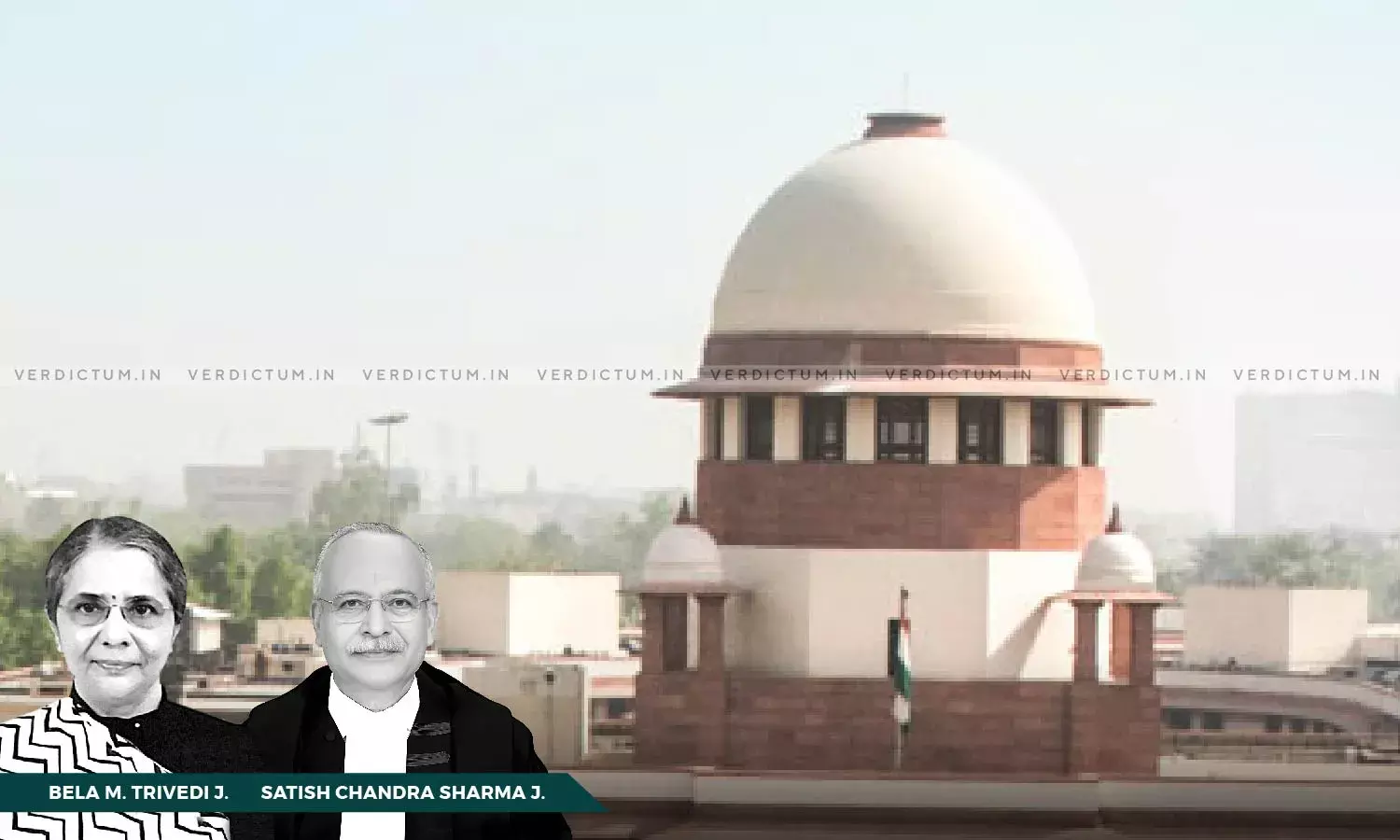Fresh Suit Not To Be Filed When Subsequent Events Form Continuous Cause Of Action & Don’t Change Nature As Well As Character Of Civil Suit: SC

The Supreme Court clarified that a fresh suit is not to be filed when subsequent events form a continuous cause of action as such events don’t change the nature and character of the Civil Suit.
The Appellants approached the Apex Court challenging the order whereby the Single Judge of the Calcutta High Court allowed the application filed by the present Respondent/original Applicant seeking amendment of plaint and dispensed with the requirement of issuance of notice under Section 80 of the Code of Civil Procedure Procedure,1908 for incorporating the amendment and prayer by way of amendment in the original plaint.
The Division Bench comprising Justice Bela M. Trivedi and Justice Satish Chandra Sharma asserted, “A cause of action is continuing when the act alleged to be wrongful is repeating over a period of time, and consequently extending the limitation period.”
Senior Advocate Ashok Kumar Panda represented the Appellants while AOR Sarad Kumar Singhania represented the Respondents.
In this case, the Respondent emerged as the successful applicant for a tender floated by the Appellant/Superintending Engineer, Public Works Department for the strengthening of the Howrah-Amta Road. An agreement was entered into by the parties. However, the Respondent’s security deposit came to be forfeited in light of non-completion of work.
The Appellant debarred the Respondent from participating in any tender floated by it for the next two years. Aggrieved by a memo asking the Respondent to appear before the Debarment Committee, the Respondent preferred a suit challenging the authority of the Appellants. The High Court granted liberty to the respondent to contest his claims. Thereafter, another debarment Order (Underlying Debarment Order) was passed debarring the Respondent from participating in any tender floated by it for the next two years. The Respondent’s application challenging the same was rejected.
At the close of the litigation history, the Respondent filed another application for amendment of the plaint (Underlying Application).The Respondent prayed to amend the plaint and the prayer on the ground that several facts had taken place after the Civil Suit was filed resulting in a continuous cause of action, whereby it was pertinent to bring those facts on record in order to adjudicate upon the dispute.Vide the Impugned Order, the High Court categorically held that the amendment sought for by the Respondent amounts to a continuous cause of action and will not change the nature and character of the Civil Suit.
Challenging the impugned Order, the Appellants submitted that subsequent events of debarment give rise to a fresh cause of action for which a fresh suit is to be filed, regardless of the parties being the same.
On the contrary, it was the respondent’s case that all the subsequent facts sought to be brought on record are a replica of all the facts in the several applications.
The short points that fell for consideration were whether the Underlying Application is legally sustainable; and second, whether the Respondent ought to serve notice upon the Appellants under Section 80 of the CPC.
On a perusal of the facts, the Bench noted that two years had already passed since the Underlying Debarment Order when the High Court passed the order. Therefore, it was inconsequential as the Respondent was no longer blacklisted. However, the High Court kept the larger issue, i.e., the effect and legality of the Underlying Debarment Order, open.
The Bench also said, “...the debarment orders form a continuous cause of action as they are a continuation of the memo dated 08.03.2016, which came to be impugned in the Civil Suit…Cause of action is a bundle of facts giving rise to a legal right; where in the present case the cause of action is the termination of the agreement, the First Debarment Order, and the memo dated 08.03.2016.”
“Accordingly, we hold that the subsequent events form a continuous cause of action for which a fresh suit is not to be filed, as it does not change the nature and character of the Civil Suit”, the Bench held. As the issue regarding the legality of the Underlying Debarment Order was kept open hence forming the last event in the continuous cause of action, the Bench held that the Underlying Application was well within the limitation period taking into account the continuous cause of action.
One of the arguments raised by the appellant was that the dismissal of the first amendment application as withdrawn precludes the Respondent from filing the Underlying Application as under Order XXIII Rule 1 of the CPC, the same amounts to an abandonment of the claim. “The core of Section 12 of the CPC read with Order XXIII Rule 1 is that no suit lies on the same cause of action if the plaintiff has abandoned their claim. In the present case, the same is not attracted as the circumstances give rise to a continuous cause of action resulting in a situation where both the amendment applications were filed at different points of time and the former was not adjudicated on merits”, the Bench answered.
Coming to the issue of non-issuance of notice as per Section 80 of the CPC prior to the filing of the Underlying Application, the Bench observed that Section 80 of the CPC was irrelevant to the case at hand as the amendment sought amounted to a continuous cause of action and maintained the nature and character of the suit and to that extent.
Thus, finding no good reason to interfere with the impugned order, the Bench allowed the appeal.
Cause Title: The State of West Bengal & Ors. V. Pam Developments Private Limited & Anr (Neutral Citation: 2025 INSC 69)
Appearance:
Appellants: Senior Advocate Ashok Kumar Panda, AOR Chanchal Kumar Ganguli
Respondents: AOR Sarad Kumar Singhania, Advocate Sourav Agrawal

